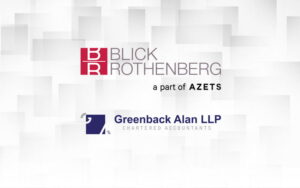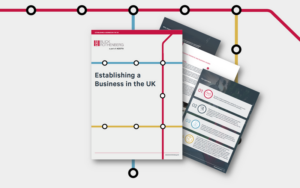2022/23 UK Tax Year End Planning for US individuals
Further to our comprehensive Personal Tax Planning Guide, this article highlights some items relevant to dual US and UK tax residents. As always, it is important to consider any cross-border implications of any UK tax planning, particularly if you are an American.
Dividends
From 6 April 2023, taxpayers will continue to be subject to a 1.25% additional tax on dividend income. This means that the tax bands remain at 8.75% (basic), 33.75% (higher) and 39.35% (additional) respectively.
Further to this, the tax-free dividend allowance will decrease from £2,000 to £1,000.
Finally, the additional rate band threshold has been lowered in 2023/24 to £125,140; this is the threshold where the personal allowance has already been lost in full. This means that some taxpayers will pay more of their dividend income at the 39.35% higher rate.
As in all years, taxpayers who have control over the timing in which they receive their dividends, such as small business owners, should declare a minimum of £2,000 of dividends ahead of 6 April 2023 to make use of their tax-free allowance.
If a business owner is already above the £125,140 threshold and needs to declare additional dividends, they should analyse whether the lowering of the additional rate band will impact them in 2023/24. If so, they should consider accelerating dividend payments ahead of 6 April to lock in the 33.75% tax rate saving 5.6% on £24,860 of dividends, a saving of £1,392.
Avoiding the 60% Income Tax rate
The £12,570 personal allowance is tapered down by £1 for every £2 of income in excess of £100,000, giving an effective rate of 60% tax for those with income between £100,000 and £125,140.
If your income is approaching this threshold as we move towards 5 April, it may be prudent to take steps to reduce your taxable income below the £100,000 mark; such steps may include making charitable donations, tax relievable pension contributions, and controlling the point at which you receive certain types of income such as dividends, as discussed above.
Charitable donations
Donations made to UK charities via the Gift Aid scheme will increase a taxpayer’s basic rate band. For example, an £8 donation will add £10 to the basic rate band, resulting in a 25% tax saving for those who pay tax at the additional rate of 45%. In addition, the charity itself can claim a further £2 as a result of that £8 donation.
Some charities are now able to facilitate US/UK dual-qualifying deductions, meaning that tax relief can apply in both the UK and the US. Even if a charity you have in mind is not able to facilitate a dual-qualifying donation, there are various third-party organisations that can assist in the structuring of the donation to allow US and UK tax relief.
Remember that gifts of land, buildings and shares can be donated, not just cash. Any gains on disposal in this context will be exempt from UK Capital Gains Tax, representing a potential double tax saving.
Pension contributions
Contributions to pension schemes can offer tax savings, but it is important to ensure that you do not exceed the annual allowance. The annual allowance currently sits at £40,000 (gross). However, this reduces gradually if your total income for the year is over £240,000. For taxpayers with income over £312,000, the allowance bottoms out at £4,000.
From 2023/24, the allowance will be increasing to £60,000 gross. This will now reduce by £1 for every £2 your total income exceeds £260,000. For taxpayers with income over £360,000, the maximum allowance is £10,000.
The employer and employee contributions both count towards the limit and any excess contributions are subject to an Income Tax charge. With that in mind, and before rushing into an additional contribution before year end, please do check how much annual allowance you have available for use. It may be beneficial to delay contributions to after 6 April to make use of the higher thresholds and to avoid any excess charges.
Importantly, if you do not use all of your allowance in a particular year, it can be carried forward for up to three years. You need to have been a member of a registered pension scheme in order to utilise an unused allowance.
Pensions have specific rules and tax treaty status and therefore can be used to not only reduce your UK tax bill, but also provide benefits for American taxpayers.
Pension lifetime allowance
The pension lifetime allowance previously sat at £1,073,100. Contributions to your pension which were in excess of this amount would consequently suffer a tax charge (55% if taken as a lump sum, or 25% if taken as a pension). From April 2024 this threshold will be abolished, meaning you can contribute an unlimited amount into your pension (subject to the contribution rules stated above).
Although the allowance is not abolished until April 2024, there will be no lifetime allowance tax charge on amounts above the threshold in 2023/24. Those taking a tax-free lump sum can take a maximum of £268,275 (25% of the current lifetime allowance), but rather than 55%, any amount above the threshold will instead be taxed at the taxpayer’s marginal rate.
Capital Gains Tax
For 2023/24, the tax-free annual exemption for capital gains is being reduced from £12,300 down to £6,000.
It may therefore be worth considering if any taxable gain events can be accelerated ahead of 6 April to ensure you can make use of the full £12,300 exemption.
Offshore income gains
In certain situations, market volatility can offer up tax planning opportunities. If you hold any overseas funds that do not have reporting status in the eyes of HMRC, any gains on disposal will be chargeable to Income Tax rates (up to 45%) rather than Capital Gains Tax rates of 20%. If those investments are currently sitting in loss positions for UK purposes, then it is a great opportunity to liquidate those funds and reinvest in something that is more UK tax friendly.
Capital loss election
For non-domiciled taxpayers who claim the remittance basis, the default position is that no relief will be given in the UK for offshore capital losses. However, it is possible to elect to claim relief for these losses. 5 April 2023 is the deadline for this election for those who first claimed the remittance basis in 2018/19.
Making this election is not always an obvious decision for a number of reasons. It can be difficult to assess, especially as it can have unpredicted results if circumstances change in the future. Tax advice should be sought as it is an irrevocable election.
Deemed Domicile – Trusts
It is worth considering whether it might be beneficial to set up an Excluded Property Trust for those becoming deemed domiciled on 5 April 2023.
If you have been resident in the UK for 15 of the last 20 tax years, then you are automatically considered to be deemed domiciled in your sixteenth year of residency. As a deemed domiciled individual, you are liable to inheritance tax on your worldwide assets – although protection can be afforded to offshore assets if they are settled into trust prior to obtaining deemed domicile status.
Excluded Property Trusts can, in certain circumstances, also be used to effectively shield foreign income and gains on trust assets until such a time as beneficiaries receive distributions or benefits. This can give a tax-free roll up on income and gains which would otherwise be taxed on an individual on an annual arising basis once deemed domiciled.
The US and UK treatment of trust distributions can vary significantly and so joined up advice should always be sought before initiating any trust-based planning.
Further, it is recommended that account structuring takes place to ensure that individuals can have unfettered access to non-UK income and gains which will now become fully taxable in the UK.
Particular areas for planning – Individuals entering their eighth or thirteenth year of tax residence in the UK
If you have been a resident of the UK for seven or less years you may have benefited from using the remittance basis without paying an associated charge. Once you are in your eighth year of residence you can only benefit from the remittance basis and shield your non-UK income and gains from UK tax by paying the £30,000 remittance basis charge.
For affected individuals, you may need to determine whether this charge provides a tax benefit. For US taxpayers, this calculation can be complex as they are subject to US tax on their worldwide income.
Equally there may be actions required to set up your non-UK affairs prior to leaving the remittance basis and moving to the arising basis of taxation. This may include considering the make-up of their foreign assets; can any non-UK tax events be accelerated such that these fall within a year where there is no remittance basis charge? Are there any assets held which are not UK tax friendly and should these be disposed of before they are exposed to tax?
Similar planning opportunities can be available for those entering their thirteenth year in the UK and determining that the £60,000 remittance basis charge may not be beneficial to them.
Finally, individuals reaching deemed domicile status who are no longer able to claim the remittance basis under any guise may wish to undertake some account planning to maximise their use of available funds in the UK.
Owner managed businesses – capital expenditure
From April 2023 the UK is allowing full expensing in the first year on qualifying main rate (plant and machinery) capital assets. Initially this will last for three years through to 31 March 2026, albeit the Government indicated they intend to make this permanent. These rules apply only for Corporation Tax purposes and will not be available to businesses which are subject to Income Tax unless they are below the Annual Investment Allowance (AIA) threshold of £1M per annum.
The US does not offer an equivalent deduction for US taxes and depreciates assets on its own separate timeline. This could result in timing mismatches on Corporate Taxes paid in both countries which could have an impact on the US Global Intangible Low-Taxes Income (GILTI) regime.
Would you like to know more?
We are on hand to discuss any of the above opportunities in more detail if you believe they could be of benefit to you or your family. Please get in touch with your usual Blick Rothenberg contact, or Sonya Rees or Ross Annand using the details on this page.
Note: This article sets out the tax considerations of various UK planning opportunities. We are not regulated to give financial or investment advice. Any investment decisions should be discussed with an Independent Financial Advisor (IFA) prior to taking action.
Contact Sonya

You may also be interested in

What is the impact with property VAT when developers’ plans change?

Contractors and subcontractors in the UK construction sector must understand the Construction Industry Scheme











